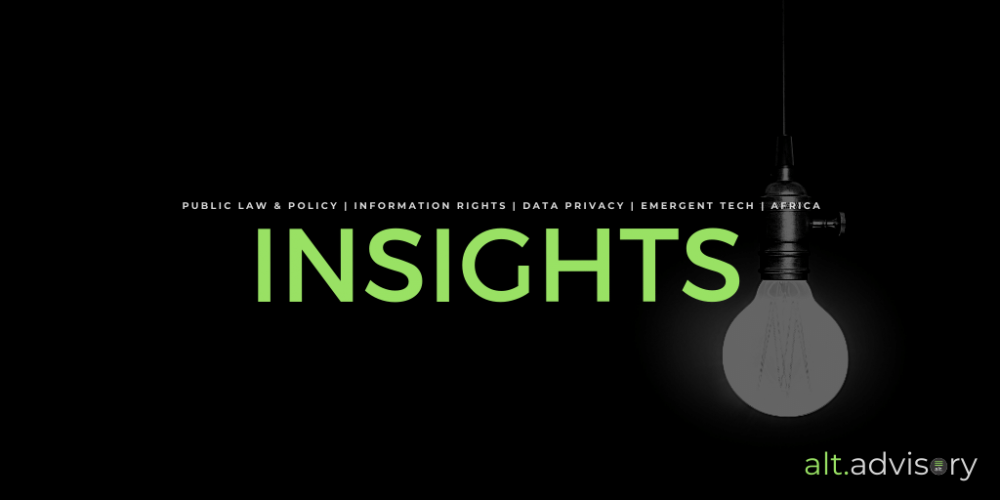Explainer: The voting threshold needed to elect a mayor
- The recent Johannesburg mayoral election of Geoff Makhubo was a chaotic affair. This was caused by uncertainty regarding the voting threshold required to elect a Mayor. From the chaos, however, emerged greater clarity on the legal position on calculating voting thresholds in Municipal Councils.
- The legal position that emerged appears to be that spoilt ballots and abstentions are not considered in the calculation of a voting threshold in mayoral elections.
- This clarity will be useful in the upcoming Tshwane mayoral election, which follows the resignation of the city’s Mayor, Stevens Mokagalapa, on 2 February 2020.
*****
Introduction
Tshwane Mayor Stevens Mokagalapa’s resigned on 2 February 2020. The resignation announcement will trigger an election process to elect a new Mayor. The Tshwane mayoral election will follow hot on the heels of the chaotic election process that saw Geoff Makhubo elected as Mayor in the City of Johannesburg. Makhubo’s ascension was preceded by uncertainty within the Municipal Council, and society at large, as to the voting threshold required to elect a Mayor. The following explainer will outline the confusion that surrounded the previous Johannesburg mayoral election and how that process provided some clarity on the legal position to calculate voting thresholds in Municipal Councils.
Background
Herman Mashaba effectively resigned as Mayor of Johannesburg on 27 November 2019. In compliance with the Municipal Structures Act (“Act”), the Speaker of the Johannesburg Council (the DA’s Vasco Da Gama) called a meeting to elect a new Mayor. The three major parties each put forward a candidate for the election.
Before the election could proceed, the EFF requested clarity from the Speaker on the meaning of the phrase “majority of votes” in the Act and the Municipal Council Rules (“Rules”). They were concerned that, because no one party held an outright majority, a Mayor may be elected without popular support in Council. This concern arose from a breakdown in relations between the EFF and the DA, who had supported each other to elect Herman Mashaba in 2016.
The Speaker momentarily adjourned the meeting to refer the query to the Council’s legal advisors. Upon reconvening, the Speaker announced his decision to postpone the election to obtain an independent legal opinion on the query. The announcement was poorly received by the ANC Councilors, who accused him of incompetence or attempting to secure a political advantage for the DA.
The ANC-controlled Provincial Government also voiced its disapproval with the Speaker’s conduct. The MEC for Co-operative Governance and Traditional Affairs threatened to remove the Speaker. The Premier added that, should the matter not be timeously resolved, his office would intervene.
The legal framework
Section 160(3) of the Constitution of the Republic of South Africa, 1996 (“Constitution”) governs the processes of a Municipal Council in respect of voting thresholds. Section 160(3) of the Constitution (mirrored by section 30(1)-(3) of the Act) sets out the following:
- Sub-section (a) establishes a quorum requirement, stipulating that a majority of the members of Council must be present at any decision-making meeting. Ordinarily, there are 270 Councilors in the Johannesburg Council and a quorum is established by the presence of 136 of them.
- Sub-section (b) establishes a voting threshold of “a majority of members” (“of Council”) for certain decisions, namely passing by-laws; approving budgets; imposing rates, taxes or duties; and raising loans. Consequently, in the ordinary course, for a decision to be made in respect of these listed functions, 136 Councilors (a majority of the 270) would have to vote in support of it.
- Sub-section (c) establishes a voting threshold of “a majority of votes cast” for all other matters before Council, including a mayoral election. Therefore, should a quorum be established in terms of subsection (a), decisions not related to those listed in subsection (b), are passed by a majority of the votes cast.
Causes of confusion
Confusion surrounding voting thresholds likely stems from the following:
Incongruous wording
There is an incongruity between the Constitution’s (and the Act’s) definition of the voting threshold required to elect a Mayor and the definition set out in clause 12 of the Rules. The Constitution defines the threshold as “a majority of the votes cast”, whereas the Rules define it as “a majority of councillors present at the meeting”. The constitutional position should arguably trump the Rules.
Establishment of two voting thresholds
Section 160 the Constitution creates two different voting thresholds. As highlighted above, certain decisions require the support of a “majority of members (of Council)”, while others require only a “majority of votes cast”. There is a misconception that electing a Mayor requires a majority of the members of Council to vote in support of a candidate. The accurate position is that only a majority of votes cast (even if this does not constitute the majority of the members of Council) are needed to elect a Mayor.
Effect of abstentions and spoilt ballots
There was concern that by abstaining or spoiling ballots, political parties could prevent anyone candidate from achieving a majority of the Council vote because no one party has an outright majority. The independent legal opinion supplied to the Speaker addressed the potential for parties to hamstringing Council in this manner. The opinion noted that the threshold for electing a Mayor is determined not simply by the majority of votes cast, but by the majority of votes validly cast. In other words, abstentions and spoilt ballots are not considered in determining the threshold. Therefore, the invalid votes must be discounted, and an election determined only by valid votes cast.
Consequently, there may be a scenario where, because parties have elected to abstain or spoilt their votes, a Mayor is lawfully elected without the popular support of the majority of Council.
Possibility of a no-confidence vote
The reality that a Mayor may be lawfully elected without popular support in Council was noted with concern by the EFF. They argued that such a scenario may leave a Mayor vulnerable to a vote of no confidence. Although such a vulnerability is possible, taking abstentions and spoilt ballots into consideration would allow parties to potentially hamstring Council’s election of a Mayor, as described above. An interpretation that permits parties to do this undermines the purpose of the legislation and should arguably not be supported in law.
Conclusion
The notion that a Mayor is elected by the supporting vote of the majority of Council is a fiction. Only a majority of actual votes cast are considered in such an election. This legal position will govern the upcoming mayoral election in Tshwane.
As South Africa moves away from an electoral duopoly, coalition politics are likely to become more prevalent in our political landscape. The debacle over the election of the Johannesburg Mayor is a symptom of this change. We would do well to acculturate ourselves in the contestations of coalition politics.
Muchengeti Hwacha is a Research Intern at ALT Advisory and Power Singh Inc. He writes in his personal capacity and his views do not necessarily represent the views of ALT Advisory or Power Singh Inc.
Please note: The information contained in this note is for general guidance on matters of interest, and does not constitute legal advice. For any enquiries, please contact us at [email protected].



